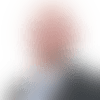With Super Bowl LIV in the books, the offseason is upon us. To get ready for the NFL Scouting Combine, free agency and the 2020 NFL Draft, Nick Shook and Gennaro Filice are taking a division-by-division look backward to evaluate each team's crop of 2019 rookies, weighing hits and misses -- then looking forward at areas for each squad to focus on in the coming months. Shook examines the AFC North below.
**Round 3:** (66)
Diontae Johnson, WR, 16 games/12 starts; (83)
Justin Layne, CB, 10 games/0 starts.
**Round 4:** (122)
Benny Snell Jr., RB, 13 games/2 starts.
**Round 5:** (141)
Zach Gentry, TE, 4 games/0 starts.
**Round 6:** (175)
Sutton Smith, OLB, 0 games/0 starts (now with Seahawks); (192)
Isaiah Buggs, DT, 9 games/0 starts; (207)
Ulysees Gilbert III, LB, 7 games/0 starts.
**Round 7:** (219)
Derwin Gray, OT, 0 games/0 starts.
**Notable rookie FA signings:**
Devlin Hodges, QB, 8 games/6 starts.
The Steelers' trade up to select Bush was worth it, proven by his fine rookie play. Bush recorded 109 tackles, four passes defended, two interceptions and a forced fumble. He's a stud. A+ for that. The third round provided some value to Pittsburgh in the form of Johnson, who saw additional playing time due to JuJu Smith-Schuster's injury issues and caught 59 passes for 680 yards and five touchdowns. It'll be interesting to see if he makes a bigger leap in his second season with Ben Roethlisberger back under center. Layne projected to perhaps answer the Steelers' long-running question at cornerback, but he didn't play a defensive snap in 2019, spending his entire time on special teams. Snell, however, flirted with a 4-yards-per-carry average on his 108 attempts, gaining 426 yards and making two trips to the end zone. He's a worthy backup to James Conner. Gentry saw very little action and caught just one pass in 2019. Smith is now with the Seahawks. Buggs made an occasional rotational contribution, and Gilbert spent his season on special teams. Gray spent 2019 on the practice squad and was signed to a futures contract. The undrafted Hodges initially arose from afterthought who'd beaten out Joshua Dobbs for a roster spot to the symbol of hope for Pittsburgh, though his struggles down the stretch contributed to the Steelers missing the playoffs for a second straight season.
**Combine/free agency focus:**
Joe Haden had an excellent year, but it's time to start thinking about life after the 30-year-old corner. Pittsburgh spent a third-rounder on Layne last April, and could use another selection this draft on a quality prospect.
Mason Rudolph proved he can't be relied on, as did (ultimately) Hodges, meaning the first pick Pittsburgh owns could be spent on a quarterback.
Big Ben turns 38 in March and is currently rehabbing from a serious elbow injury. Another thing to think about: the future at center beyond 30-year-old
Maurkice Pouncey. Not an immediate need, but something to consider. Pittsburgh sent its first-round pick to Miami for
Minkah Fitzpatrick, so the expectations in the draft should be lowered slightly. With less than $2 million in projected cap space for 2020 at the moment,
per Over The Cap, there are going to be a couple of cap casualties (looking at you, Mark Barron). Expect most additions to be made via the draft.
</content:power-ranking>
**Round 3:** (85)
Jaylon Ferguson, Edge, 14 games/9 starts; (93)
Miles Boykin, WR, 16 games/11 starts.
**Round 4:** (113)
Justice Hill, RB, 16 games/0 starts; (123)
Ben Powers, OG, 1 game/0 starts; (127)
Iman Marshall, CB, 3 games/0 starts.
**Round 5:** (160)
Daylon Mack, DT, 1 game/0 starts.
**Round 6:** (197)
Trace McSorley, QB, 1 game/0 starts.
**Notable rookie FA signings:**
Patrick Mekari, OG, 11 games/5 starts.
Brown didn't end up being the best receiver drafted with the last name Brown in 2019, but he was still a healthy contributor to the Ravens' offensive efforts. Ferguson didn't replicate the efforts that earned him the "Sack Daddy" nickname at Louisiana Tech, however he was able to carve out a role for himself, starting nine games for Baltimore. Boykin and Hill each played rotational roles, and Hill remains as a speedy option in the Ravens' backfield to spell to Mark Ingram and Gus Edwards. Powers, Marshall and Mack didn't get many chances to contribute due to their lack of games played. McSorley could help another team as a dual-threat option, perhaps even filling a Taysom Hill-like role elsewhere, but he's buried on the depth chart behind Lamar Jackson and Robert Griffin III.
**Combine/free agency focus:** Guard might be a position needing a long-term future starter if
Marshal Yanda decides to call it a career. Linebacker includes the contributions of unheralded addition
L.J. Fort, who earned himself a short contract extension during the season, but the team could still use another young addition after trading away
Kenny Young. Baltimore is in the lower half of the league when it comes to projected salary cap space, but thanks to the trade for
Marcus Peters, the roster has less holes to fill in the offseason, especially if the
Ravens continue to get production from their first four picks of 2019.
</content:power-ranking>
**Round 3:** (80)
Sione Takitaki, LB, 15 games/1 start.
**Round 4:** (119)
Sheldrick Redwine, S, 12 games/5 starts.
**Round 5:** (155)
Mack Wilson, LB, 16 games/14 starts; (170)
Austin Seibert, K, 16 games/0 starts.
**Round 6:** (189)
Drew Forbes, OL, 2 games/0 starts.
**Round 7:** (221)
Donnie Lewis Jr., CB, 0 games/0 starts.
**Notable rookie FA signings:**
Stephen Carlson, TE, 9 games/5 starts;
Jamie Gillan, P, 16 games/0 starts.
The Browns landed a first-round talent in the second round when they snagged Williams, whose biggest knock ahead of the draft was his seeming apprehension toward tackling. That wasn't much of an issue as a rookie (one missed tackle in coverage in 2019, per Pro Football Focus), though his hamstring was, causing him to miss four games. Cleveland greased the skids for Williams to start, and he proved worthy of the job opposite Denzel Ward. As for the second defensive back selected, Redwine found himself buried behind four other safeties, but injuries and a midseason release of Jermaine Whitehead opened the door for the rookie to get valuable playing time. He was beaten at times, but did show incremental improvement. Redwine is an instinct-reliant player, and he'll take time to learn about proper positioning. The Browns landed a legitimate starter in Wilson, who was forced into such a role after an early season-ending injury to Christian Kirksey, and while he needs to work on his coverage skills, Wilson looks to be a steal. Takitaki didn't get as much burn, but plays with passion and speed above all else and could replace Joe Schobert if he isn't retained. Forbes shifted from tackle to guard and made strides on the practice field, but spent most of the season on IR. The Browns finally found their kicker in Seibert, though he needs to become more consistent on PATs. Lewis was a cutdown day casualty, but spent most of the season on Cleveland's practice squad. Lastly, the undrafted Gillan has a cannon for a leg and boomed some absurdly long punts, but is still working on developing his entire bag of clubs, as special teams coaches like to say. The Browns' retention of special teams coordinator Mike Priefer should go a long way toward accelerating Gillan's development as a well-rounded punter -- and his rugby background helps him with tackling, if needed, too.
**Combine/free agency focus:** Offensive line. The
Browns sent an All-Pro-level guard (Kevin Zeitler) to New York in the
Odell Beckham trade and thought they might get former second-rounder
Austin Corbett in a position to succeed him. Corbett was traded to Los Angeles just before the deadline.
Wyatt Teller, another in-season acquisition, ended up manning the spot after a dalliance with free-agent signing
Eric Kush. Teller did a decent job, but this need extends beyond guard. Both of the
Browns' tackles weren't good enough to qualify for a contending team.
Greg Robinson is headed to free agency and
Chris Hubbard's five-year deal might be too hefty to continue to carry, meaning the
Browns need to take a long, hard look at all of the linemen available this offseason. Luckily, this draft is loaded at tackle. The
Browns could also use depth additions on the defensive line after curiously parting ways with both
Chris Smith and
Devaroe Lawrence during the season.
</content:power-ranking>
**Round 2:** (52)
Drew Sample, TE, 9 games/2 starts.
**Round 3:** (72)
Germaine Pratt, OLB, 16 games/9 starts.
**Round 4:** (104)
Ryan Finley, QB, 3 games/3 starts; (125)
Renell Wren, DT, 11 games/2 starts; (136)
Mike Jordan, OL, 13 games/9 starts.
**Round 6:** (182)
Trayveon Williams, RB, 11 games/0 starts; (210)
Deshaun Davis, LB, 0 games/0 starts (now a free agent); (211)
Rodney Anderson, RB, 0 games/0 starts.
**Round 7:** (223)
Jordan Brown, CB, 0 games/0 starts (now with Raiders).
**Notable rookie FA signings:**
Fred Johnson, OT, 6 games/1 start;
Damion Willis, WR, 10 games/2 starts.
*Incomplete* is honestly the most accurate grade we could give to this group, thanks to
Jonah Williams' season-ending torn labrum that occurred before he even got started. Add in Sample, who battled an ankle injury that ultimately landed him on IR in early December. Pratt ascended to a starting role once it became clear veteran
Preston Brown couldn't help these young
Bengals, and the younger linebacker figures to find himself with a starting role next season. Finley was temporarily handed the keys before the
Bengals wised up after seeing him post a 62.1 passer rating and a sub-50 completion percentage in three starts. Wren was decent in the small amount of defensive snaps he received. The
Bengals might have found something in Jordan, who ranked above players like
Rams guards
Austin Blythe and
Joseph Noteboom in pass blocking, per PFF.
Trayveon Williams found it tough to see playing time behind
Joe Mixon and
Giovani Bernard, contributing mostly on special teams. Anderson tore his ACL in the final preseason game, and Davis is currently without a team. Brown ended up with the
Oakland Raiders.
**Combine/free agency focus:** This team still needs plenty of help in many areas, but we can expect the
Bengals to take LSU QB Joe Burrow with the No. 1 pick. With that need crossed off, we can turn to wide receiver, defensive line (to replace veterans), linebacker and offensive line. The
Bengals are armed with $44 million in cap space,
per Over The Cap, so they should be positioned to make some much-needed upgrades and hold out hope they can retain
A.J. Green, or else turn to free agency/the draft to replace him.
</content:power-ranking>
Follow Nick Shook on Twitter @TheNickShook.












